
- Home
- India
- World
- Premium
- THE FEDERAL SPECIAL
- Analysis
- States
- Perspective
- Videos
- Sports
- Education
- Entertainment
- Elections
- Features
- Health
- Business
- Series
- In memoriam: Sheikh Mujibur Rahman
- Bishnoi's Men
- NEET TANGLE
- Economy Series
- Earth Day
- Kashmir’s Frozen Turbulence
- India@75
- The legend of Ramjanmabhoomi
- Liberalisation@30
- How to tame a dragon
- Celebrating biodiversity
- Farm Matters
- 50 days of solitude
- Bringing Migrants Home
- Budget 2020
- Jharkhand Votes
- The Federal Investigates
- The Federal Impact
- Vanishing Sand
- Gandhi @ 150
- Andhra Today
- Field report
- Operation Gulmarg
- Pandemic @1 Mn in India
- The Federal Year-End
- The Zero Year
- Science
- Brand studio
- Newsletter
- Elections 2024
- Events
- Home
- IndiaIndia
- World
- Analysis
- StatesStates
- PerspectivePerspective
- VideosVideos
- Sports
- Education
- Entertainment
- ElectionsElections
- Features
- Health
- BusinessBusiness
- Premium
- Loading...
Premium - Events
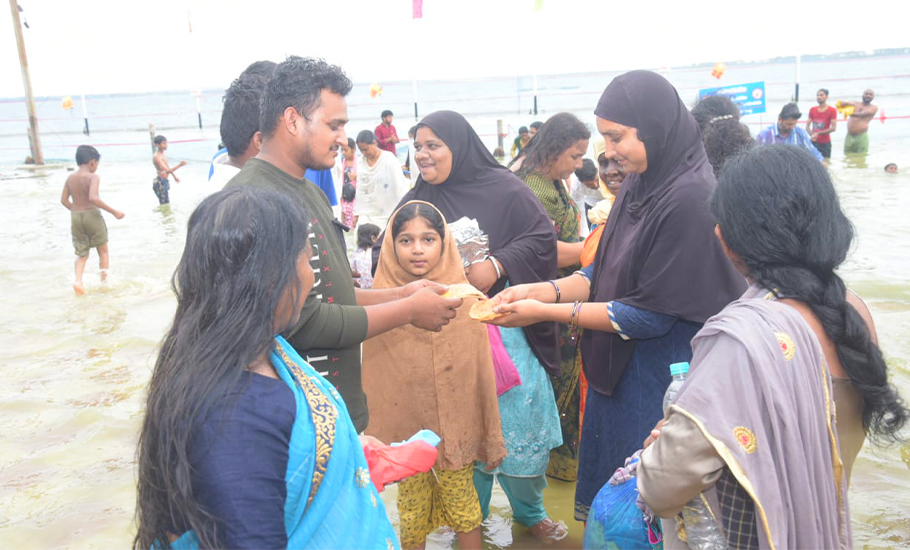
Why rotis are exchanged for wishes at Bara Shaheed dargah in Andhra

From walking barefoot across several kilometres, to fasting without water, to lighting candles every Sunday, people go to great lengths to trade off these voluntarily undertaken hardships for the fulfilment of their wishes. But at Bara Shaheed dargah in Andhra Pradesh’s Nellore lakhs of Muslims, Hindus, and Christians from all across India congregate every year on the day of Muharram to...
From walking barefoot across several kilometres, to fasting without water, to lighting candles every Sunday, people go to great lengths to trade off these voluntarily undertaken hardships for the fulfilment of their wishes. But at Bara Shaheed dargah in Andhra Pradesh’s Nellore lakhs of Muslims, Hindus, and Christians from all across India congregate every year on the day of Muharram to pray that the wishes of others be fulfilled. At the Bara Shaheed dargah, located on the banks of a lake called Swarnala Cheruvu, one always prays for others by offering sacred rotis.
This is how it is done. Say you have a dream to build a house. You go to the dargah. Pay homage to Bara Shaheed and walk down to the lake to stand in the waters. Devotees consider standing in the sacred water on par with a holy dip. It is here that you would see thousands of people offering ‘thanksgiving rotis’. The offering is made by people whose wishes were fulfilled after praying at the dargah the previous years.
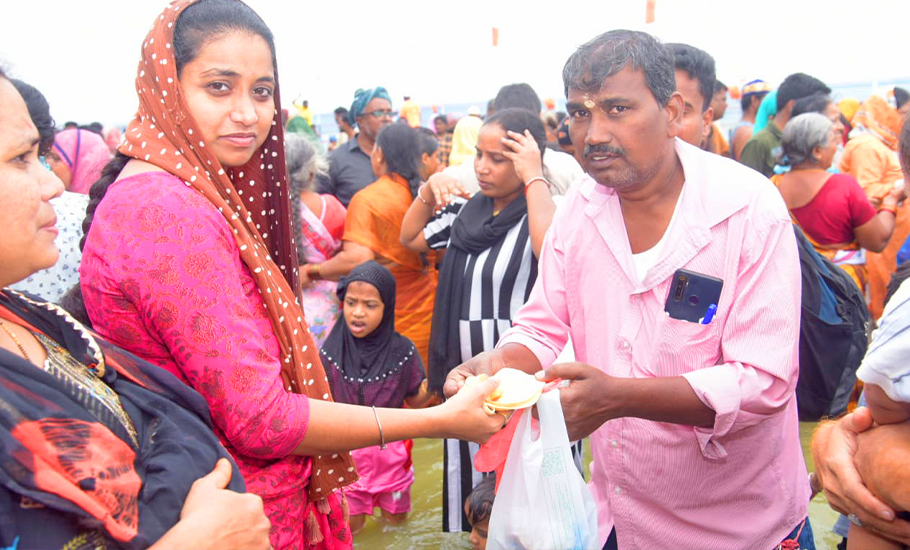
You can choose from them a roti that corresponds to your wish. Irrespective of your religion, the donor offers you the roti wishing your dream of building a house be fulfilled soon. If it is fulfilled, you would distribute ‘house construction rotis’ the following year. And those wanting to build a house would accept it. The cycle goes on unending. The rotis are offered for marriages, children, success in business, jobs, transfers, health, wealth, visa, peaceful retired life, family troubles, etc.
This year the dargah management committee has designated 11 types of rotis. But there is no bar on exchanging other rotis, including those for political aspirations. The act of exchanging rotis is popular as Rottela Panduga (Rotiyon ki Eid or Roti Festival) among the believers.
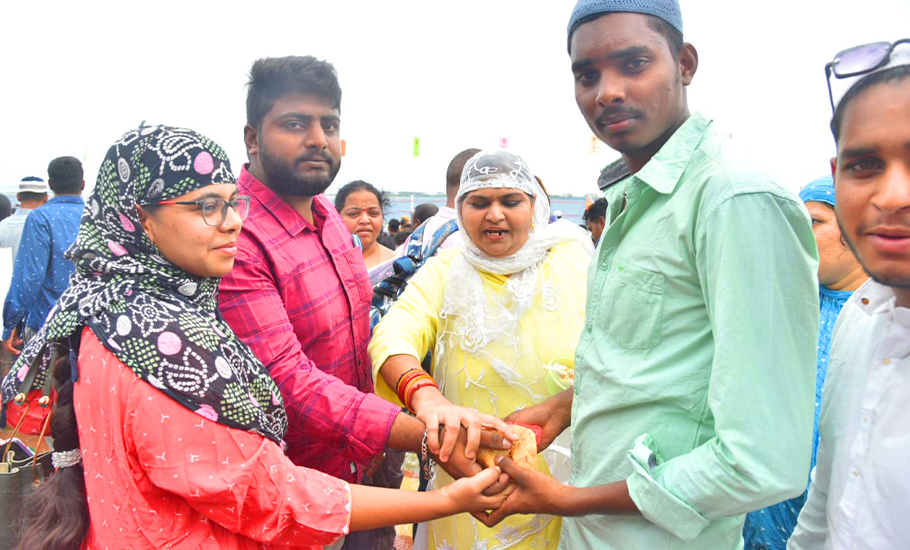
This year, the five-day Roti Festival commenced on July 29 and will come to an end today (August 2).
“One can bring rotis from home or buy them at the dargah. A roti costs Rs 100. The roti is always accompanied by a piece of jaggery. Of all the rotis ‘foreign education roti’ or ‘visa roti’ is the most popular,” 29-year-old Nalini Kilaru, who is planning to go to the US for higher studies, tells The Federal.
Bara Shaheed Dargah is a mausoleum built for 12 Muslim warriors, who are said to have sacrificed their lives in an unknown battle centuries ago for peace, goodwill, and communal harmony.
According to local lore, these warriors, who were on a peace march, reached the area and were locked in a battle with a few unruly elements. They were killed in the battle but to commemorate their sacrifices tombs were constructed in their honour on the spot where their chopped heads fell. In due course, the area became a place of worship called Bara Shaheed dargah. Since Muharram is the day when both Shia and Sunni Muslims mourn Husayn’s suffering and martyrdom, people in Vellore started paying tributes to the 12 martyrs on this day.
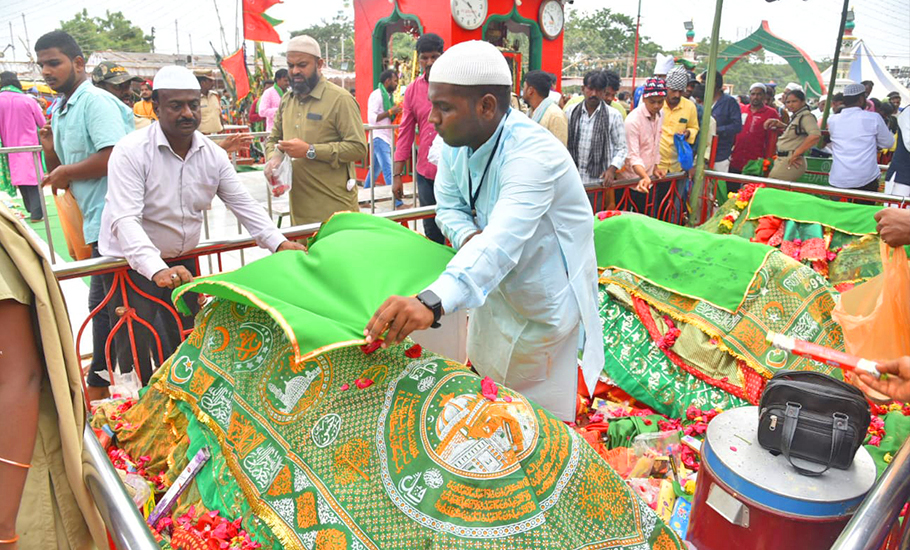
As for the Rottela Panduga, the tradition is said to have begun during the reign of Arcot Nawab in the 17th century when Nellore was part of his kingdom.
Maulvi Ismail Khadri, chairman of the festival committee delineated a story tracing the origins of the Roti Festival.
“Once, the daughter of the Arcot Nawab fell sick. The Nawab was worried as she wasn’t getting better despite all the treatment. One night the Nawab had a dream in which he saw that his daughter’s cure lay in the soil of Lake Swarnala Cheruvu near the Bara Shaheed dargah. The next morning the soil was brought and applied to the girl’s body. Miraculously, her ailment was cured. The Nawab then paid a thanksgiving visit to the dargah and distributed rotis which came to be known as shehat ki roti (the roti for health). In due course, people with unfulfilled dreams started visiting the dargah to distribute and accept rotis,” the maulvi told The Federal, adding that foreign education and health were popular roti-exchanges.
Wish-fulfilment, not religion, matters
The festival is unbelievably secular and religion is not important for any devotee who wants to exchange rotis. “What is important is the availability of donor and receptor,” said Kolagani Sreenivas, who works with a popular Telugu daily.
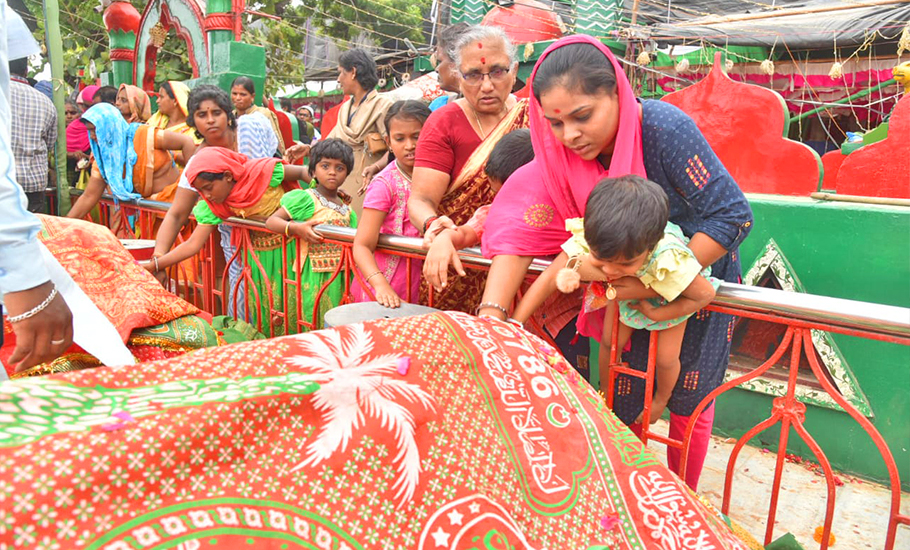
He had accepted ‘house construction’ roti in 2022 and his wish was fulfilled so he offered the same this year at the dargah. “Now, I have distributed house construction rotis to those who were waiting for similar rotis. It takes two or three hours to locate a person with a similar wish in the huge crowd,” Srinivas said.
According to Dr Palleti Sujatha, who teaches at the Tourism Management department of Simhapuri University, Nellore, the Roti Festival is extremely popular among Muslims and Hindus alike. Her team conducted a survey on the devotees and found that half of them were Muslims while Hindus constitute 40 per cent. The rest belonged to other religions including Christianity.
Exchange of political rotis
Maulvi Khadri said no place was designated for political rotis. But followers of political leaders do visit the dargah to distribute or accept political rotis.
This year so far, no celebrity politician has exchanged rotis. But, Khadri said, he had information that Andhra Pradesh minister RK Roja was planning to offer prayers at the dargah. The maulvi refused to speculate about the roti she would be offering.
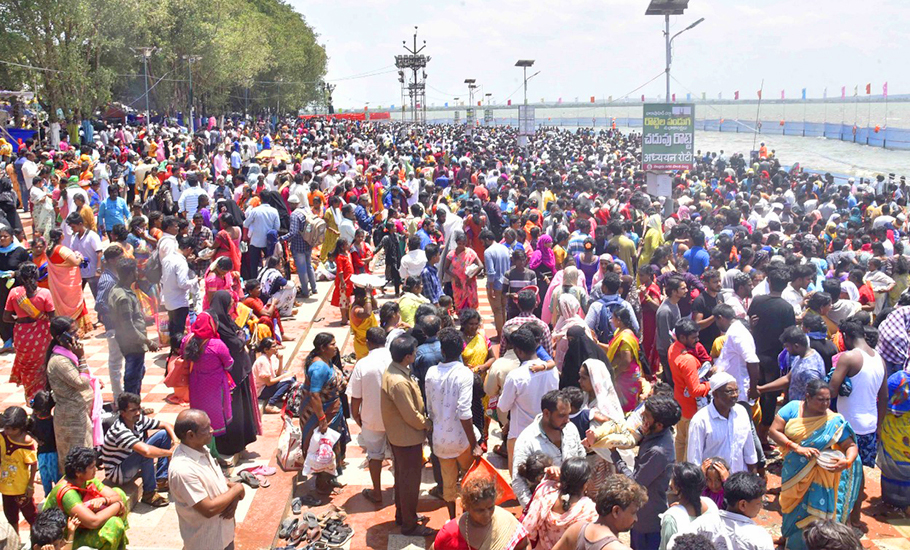
In 2015, the then chief minister Chandrababu Naidu and Leader of Opposition (LoP) YS Jaganmohan Reddy exchanged rotis with their party leaders. “Chief minister Chandrababu Naidu exchanged rotis with TDP leaders for the early completion of Amaravati Capital construction. The next day LoP, Jagan, also visited the dargah and exchanged rotis wishing the Centre to accord special category status to Andhra Pradesh. But, even after eight years, their wishes remain unfulfilled,” said a volunteer at the dargah.
In 2018, Jana Sena chief Pawan Kalyan did pay a visit to the dargah. But he chose to offer prayers on Gandham day, that is, a day before the commencement of the Roti Festival.
